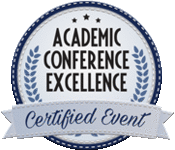Dr. Elemam
Vienna International Centre, Austria
Title: The IAEA activities on nuclear cogeneration for sustainability and climate change mitigation
Biography
Biography: Dr. Elemam
Abstract
The use of nuclear energy for cogeneration of heat and power is a well-proven path with over 750 reactor-years of operation, mainly in district heating and desalination applications. Nuclear cogeneration is one of the most promising clean alternatives to serve towards achieving sustainable development by contributing to cover part of the continuously growing energy demands worldwide for industrial processes, transportation, industry, residential applications, along with many other sectors. The projects of nuclear cogeneration serve the main elements of sustainability: energy, environment, and cost. Advanced nuclear reactors incorporating cogeneration features are expected to provide more environmentally benign energy systems operating at higher energy efficiency. Furthermore, the recovery of waste heat of nuclear power plants for cogeneration applications would lead to a direct reduction of the overall plant losses and emissions.
The IAEA conducts several activities to support its Member States interested in non-electric applications and cogeneration using nuclear energy. The IAEA also developed several tools to elaborate on the feasibility and technoeconomics of nuclear desalination, district heating, and hydrogen production applications. This paper highlights the aspects of the use of the nuclear energy for non-electric applications and cogeneration, and discusses the main activities of the IAEA on related topics. In addition, the IAEA software tools and toolkits, which are developed to provide support to Member States with more understanding on the economic viability of nuclear cogeneration options, are highlighted.

